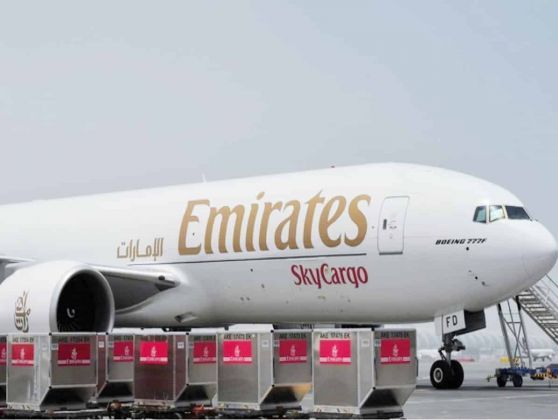
Emirates’ cargo network grows to 100 destinations
Emirates SkyCargo will be operating scheduled cargo flights to 100 destinations across six continents during the month of July 2020.

Emirates SkyCargo will be operating scheduled cargo flights to 100 destinations across six continents during the month of July 2020. Some of the new cities added to the air cargo carrier’s network include Accra, Algiers, Athens, Fort Lauderdale, Glasgow, Larnaca, Los Angeles, Male, Moscow (SVO), Phnom Penh, Rome, Santiago, Sialkot and Tunis.
Emirates SkyCargo’s network expansion is in response to the growing economic activity and demand for air cargo capacity from markets across the world along with Emirates’ increased passenger flight operations. By offering multiple daily or weekly cargo flight frequencies to major production and consumer markets, the carrier is helping facilitate supplies of goods required for combatting the current pandemic as well as machinery and equipment required for manufacturing and several key economic sectors across global trade lanes.
In addition to scheduled services, Emirates SkyCargo also operates a number of special charter flights every week to transport a range of commodities from Personal Protective Supplies (PPE) and pharmaceuticals to food and outsized machinery and components.
The freight division of Emirates offers an innovative range of cargo capacity options for businesses and exporters on its modern, wide-body aircraft fleet. In addition to loading of cargo in the belly hold, Emirates SkyCargo has introduced loading of select cargo on the passenger seats and in the overhead bins of the passenger cabin of its Boeing 777-300ER aircraft. Recently the carrier also modified 10 Boeing 777-300ER aircraft from its fleet by removing seats from the Economy Class in the passenger cabin to make room for additional cargo. Emirates SkyCargo also operates 11 Boeing 777 F full freighters currently deployed to over 30 destinations every week.
Emirates SkyCargo places a strong emphasis on the safety of operations. Working with its partners, including ground handlers, the carrier has introduced a number of strict guidelines on cabin loading of cargo covering the type of permitted cargo as well as proper packaging and handling in accordance with International Air Transport Association (IATA) guidelines.

